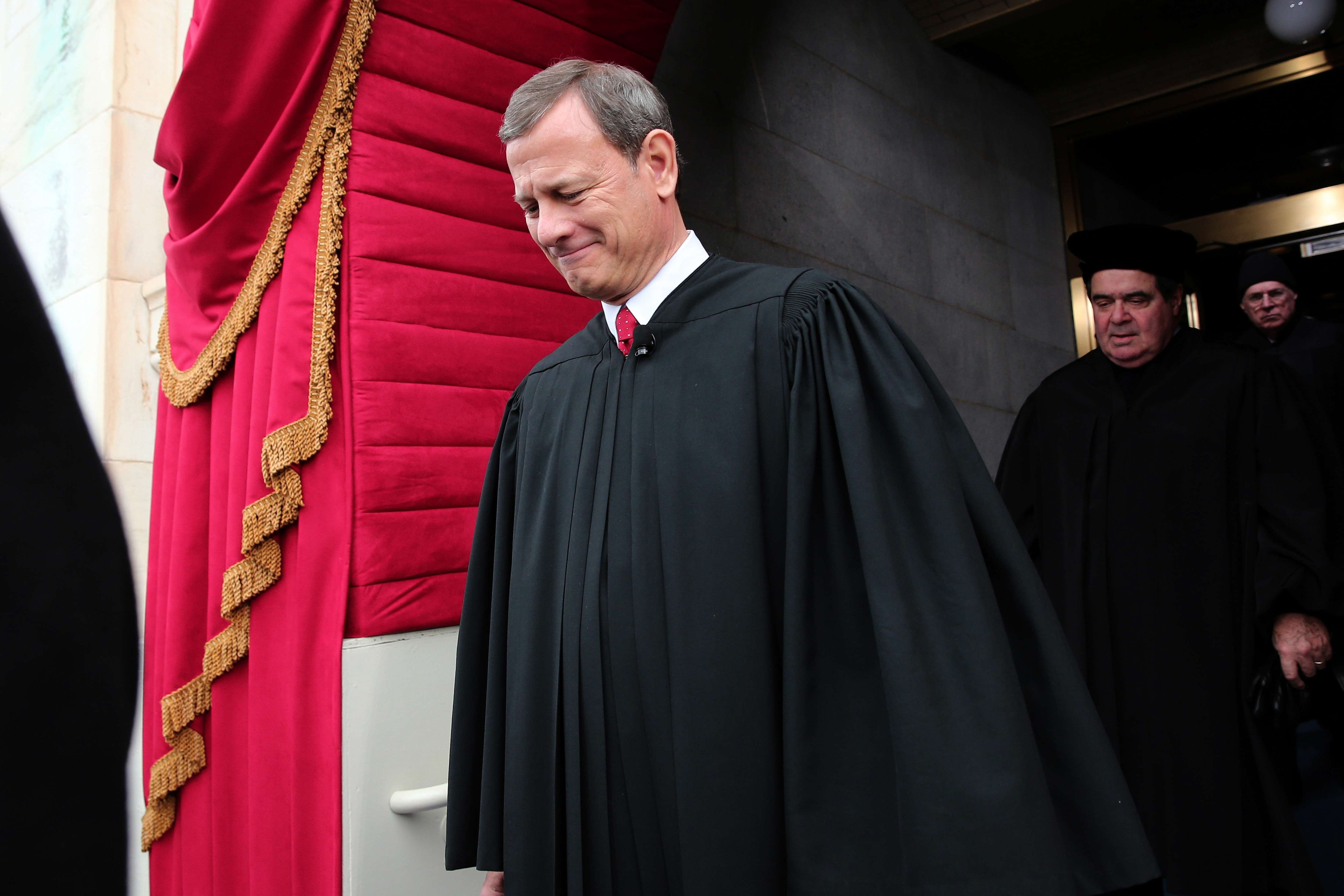The Volokh Conspiracy
Mostly law professors | Sometimes contrarian | Often libertarian | Always independent
Chief Justice Roberts: same-sex marriage not constitutionally protected because Lochner

Chief Justice Roberts invokes Lochner v. New York by name no less than 16 times in his dissent.
Not the real Lochner v. New York mind you, a relatively modest opinion, grounded in precedents holding that the Fourteenth Amendment protects liberty of contract in the absence of a valid police power rationale for the infringement.
The real Lochner held that a criminal law imposing maximum hours on bakers was not a justified infringement of liberty of contract under the police power because though it was defended as a health law, the government presented no evidence that the baking was especially unhealthful, while the plaintiff presented strong evidence to the contrary.
The real Lochner did not even inhibit governments from imposing maximum hours laws in other circumstances-the Supreme Court upheld the next dozen or so maximum hours cases to come before it.
Instead, Roberts invokes the Lochner of historical myth. This Lochner purportedly had its roots in Dred Scott v. Sanford; was based on "economic theory" and "Social Darwinism;" led the Supreme Court to "str[ike] down nearly 200 laws as violations of individual liberty;" and "empower[ed] judges to elevate their own policy judgments to the status of constitutionprotected 'liberty'" and convert[] personal preferences into constitutional mandates" based on "naked policy preferences."
Admittedly, all these criticisms of Lochner were prevalent when Roberts went to law school. However, thirty-plus years of scholarship, including many articles and such books as Howard Gilman's "The Constitution Besieged," David Mayer's "Liberty of Contract," Michael Phillips's "The Lochner Court: Myth and Reality," and my own "Rehabilitating Lochner" soundly rebut each of Roberts's assertions.
I suppose it will always be a matter of opinion the extent to which any given Supreme Court ruling reflected the Justices' personal policy preferences, but there is now virtually a scholarly consensus that: (a) Lochner had its roots in a combination of longstanding natural rights and anti-class legislation ideology that preexisted the Fourteenth Amendment and influenced understanding of equal protection and due process before the Civil War, and was prevalent in Republican and abolitionist circles; (b) that Lochner and related cases descend from those ideologies, and were not based on economic theory or Social Darwinism (indeed, save Holmes's dissent, Roberts invokes, there is literally no evidence for the latter, and Roberts misunderstands Holmes's dissent, which was criticizing Herbert Spencer's libertarianism and not Social Darwinism in any event); (c) that the 200 cases struck down figure is greatly exaggerated as most of these cases invoke a different principle than were at issue in Lochner; and (d) that regardless of the extent to which one believes the Court was influenced by the Justices' policy preferences, the relevant opinions relied on standard jurisprudential arguments, not naked policy preferences.
It's also worth noting that while Roberts proclaims that one can utterly reject Lochner and related cases while still protecting fundamental rights, as I explain in a recent article, the fact is that fundamental rights jurisprudence has its roots in such Lochner era cases as Buchanan v. Warley, Pierce v Society of Sisters, and Meyer v. Nebraska.
It's at least slightly embarrassing that Roberts is either unaware of or chose to ignore the last thirty years of Lochner-related scholarship in favor of invoking hoary myths that are useful for rhetorical purposes, and that Thomas and Scalia joined the opinion.
As I wrote at the end of my book, when the Justices use Lochner "as shorthand for what they consider the activist sins of their opponents, they are substituting empty rhetoric for meaningful constitutional argument." And their understanding of Lochner is always inaccurate to boot.
Perhaps an even better reason to give up on invoking the mythical Lochner is that it doesn't work. Has any Justice ever even contemplated changing his vote because the other side accused him of mimicking Lochner?


Show Comments (0)